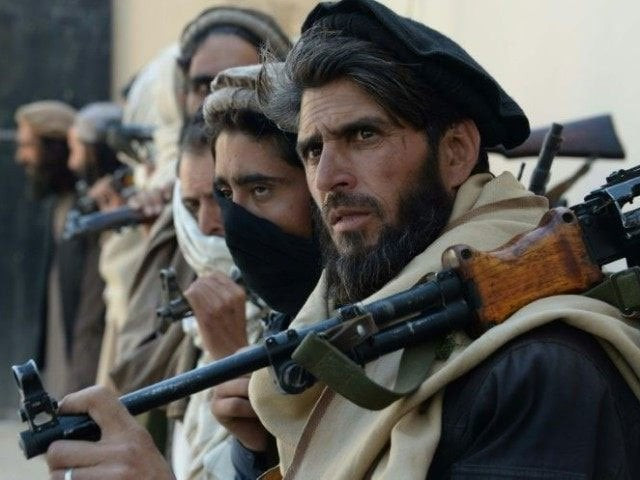Taliban delegation’s visit to Pakistan draws ire of Afghan officials
Ghani has, for now, limited Pakistan’s role in reconciliation

PHOTO: AFP
After the last quadrilateral meeting of Afghan, Pakistani, Chinese and American diplomats in Kabul in February, more talks were expected to take place in early March. However, the Taliban refused to participate in the dialogue.
Pakistani officials have engaged in continuous efforts to bring the Taliban to the talks. Earlier this week, the group’s political office sent a three-member delegation to Pakistan for talks.
However, before the delegation landed in Pakistan, some Afghan officials leaked the information to the media.
Earlier, Afghan and Pakistani officials said a meeting between the Taliban and the Afghan government was scheduled for April 27.
Once Afghan officials in Kabul learnt about the delegation’s arrival, they leaked the information to the media. However, the officials subsequently said they were not in the loop and no meeting had been planned with the Taliban in Pakistan.
Spanner in the works
The Taliban delegation’s visit could have served as a major breakthrough as it is the first time representatives from the group’s Qatar office have arrived in Islamabad. However, many analysts have called it the second round of the Murree talk debacle. The direct talks were derailed in July 2015 following the death of the leader of the Afghan Taliban, Mullah Omar.
Afghanistan has cast a shadow of doubt over the effectiveness of the delegation’s visit to Islamabad. In his speech in Parliament on April 25, President Ashraf Ghani announced a major shift in Afghanistan’s long-standing policy on Pakistan’s role in the reconciliation process.
“Pakistan had assured it would use military [force] against those Taliban who do not join the reconciliation process and continue violence,” he said. “Let me make it clear we do not expect Pakistan to bring the Taliban to the negotiating table. [However], we urge Pakistan to honour the promise made in the quadrilateral agreement and carry out military operations against those who are operating within Pakistan.”
Through these remarks, Ghani has, for now, closed the chapter of Pakistan’s role in the reconciliation with the Taliban.
Similarly, Shah Huseen Murtazawe, a presidential spokesperson has trenchantly criticised the delegation’s visit to Pakistan.
Speaking in Kabul on April 27, the spokesperson said a “terrorist organisation” should not have been allowed to pay such visits.
Raising an eyebrow
A statement issued by the Afghan Taliban confirming its delegation’s visit to Pakistan also raised eyebrows.
According to the statement, the Taliban will discuss “issues regarding Afghan refugees and some problems about frontier areas” with officials in Pakistan. Afghan officials have questioned how the Taliban can discuss such matters.
At this stage, Pakistan has yet to confirm the news. Foreign Secretary Aizaz Ahmed Chaudhry has denied having any knowledge about the visit.
Matter of sovereignty
Since Ghani no longer wants to seek Pakistan’s role in the reconciliation process with the Taliban, Pakistan should also respect Kabul’s decision and avoid intervention.
Afghanistan has the right to devise policies in line with its national interests. Other countries should not consider it their right to dictate policy. There is a pressing need to change this approach as it has created multiple problems for Afghanistan.
For their part, Afghan leaders should also take the blame for foreign intervention in its affairs.
Earlier this month, US Secretary of State John Kerry flew into Kabul and pressed Ghani and Afghanistan’s Chief Executive Dr Abdullah Abdullah to resolve their differences.
Ghani’s policy of confrontation with Pakistan will not be beneficial for both countries. Many in Pakistan were surprised by the remarks made by Dawa Khan Meenpal, deputy spokesperson for Ghani. Meenpal said Kabul will launch diplomatic efforts to “isolate” Pakistan on the international and regional level.
Last week, an Afghan delegation walked out of the UN General Assembly after Pakistani delegation began his speech.
Published in The Express Tribune, April 30th, 2016.













COMMENTS
Comments are moderated and generally will be posted if they are on-topic and not abusive.
For more information, please see our Comments FAQ